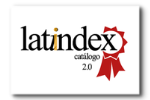Facing the diagnosis of Down Syndrome by parents: nursing contributions
DOI:
https://doi.org/10.5281/zenodo.7094787Keywords:
Down's syndrome. Parent-Child Relations. Child Care. Nursing.Abstract
Down syndrome is caused by a genetic alteration that is manifested by several signs and symptoms. Parents and the way they face the diagnosis play a fundamental role in the life of a child with Down Syndrome. It is up to nursing to minimize any problems that may harm the biopsychosocial well-being of the child. Objective: to reveal the experience of parents about the diagnosis of Down Syndrome in their children and to verify the previous knowledge about DS. Method: This study is a systematic review of the published literature on the subject. Scientific articles were collected through the Biblioteca Virtual de Saúde (). Articles published in the BDENF and Lilacs databases until June7th, 2022 were selected, using the descriptors "Down Syndrome", "Nursing" and "Child Care", combined by the Boolean operator “AND”. Results: The analyzed studies show that the nurse has a fundamental role in this process and that the literature on the subject is still very scarce
References
Silva NLP, Dessen MA. Síndrome de Down: etiologia, caracterização e impacto na família. Curitiba: Interação em Psicologia [periódicos da internet]. dez 2002 [acesso em 01 jul 2021]; 6(2): 167-176. Disponível em: https://revistas.ufpr.br/psicologia/article/view/3304.
Schwartzman JS. Síndrome de Down. 2. Ed. São Paulo: Memnon: Mackenzie, 2003.
Cunha AMFV, Blascovi-Assis SM, Fiamenghi Jr GA. Impacto da notícia da síndrome de Down para os pais: histórias de vida. Ciência & Saúde Coletiva [online]. 2010 [acesso 02 jul 2021]; 15 (2): 445-451. Disponível em: https://doi.org/10.1590/S1413-81232010000200021.
Miranda ALPL, Araújo JL, Silva KVLG, Nascimento EGC. O cuidado de enfermagem à pessoa com síndrome de down na estratégia saúde da família. R. Enferm. Cent. O. Min. 2014 [acesso 02 jul 2021]; 4 (2): 1076-1089. Disponível em: http://seer.ufsj.edu.br/index.php/recom/article/view/640/759
Bolsanello MA. Interação mãe-filho portador de deficiência: concepções e modo de atuação dos profissionais em estimulação precoce [tese de doutorado]. São Paulo: Universidade de São Paulo, 1998.
Brasil, Instituto Brasileiro de Geografia e Estatística. Censo Brasileiro de 2010. Rio de Janeiro: IBGE, 2012 [acesso 02 jul 2021]. Disponível em: https://www.ibge.gov.br.
Brunoni D. Aspectos epidemiológicos e genéticos. In Schwartzman JS. Síndrome de Down. 2. Ed. São Paulo: Memnon: Mackenzie, 2003.
Cunningham C. Síndrome de Down: uma introdução para pais e cuidadores. Tradução de Ronaldo Cataldo Costa. 3. ed. Porto Alegre: Artmed, 2008.
Casarin S. Aspectos psicológicos na síndrome de Down. In Schwartzman JS. Síndrome de Down. 2. Ed. São Paulo: Memnon: Mackenzie, 2003.
Florez J. Nota sobre o papel da família na criança com SD. In Serés A, Quiñones E, Casaldáliga J, Corretger J, Trias K. Síndrome de Down, de A a Z. Espanha: Barcelona: Ed. Saberes, 2011.
Carswell WA. Estudo da assistência de enfermagem a crianças que apresentam Síndrome de Down. RevLat Am Enfermagem [Internet]. 1993 [acesso 02 jul 2021];1(2):113-28. Disponível em: http://www.scielo.br/scielo.php?script=sci_arttext&pid=S0104-11691993000200010&lng=pt&nrm=iso
Nunes MDR, Dupas, GN, Lucila C. Atravessando períodos nebulosos: a experiência da família da criança portadora da Síndrome de Down. Revista Brasileira de Enfermagem [online]. 2011, v. 64, n. 2 [Acessado 7 Jun 2022] , pp. 227-233. Disponível em: <https://doi.org/10.1590/S0034-71672011000200002>
 https://orcid.org/0000-0002-2877-0328
https://orcid.org/0000-0002-2877-0328 http://lattes.cnpq.br/7815772428461796
http://lattes.cnpq.br/7815772428461796 https://orcid.org/0000-0002-2877-0328
https://orcid.org/0000-0002-2877-0328 http://lattes.cnpq.br/0949275712701907
http://lattes.cnpq.br/0949275712701907





















